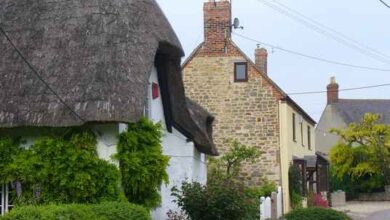Richard Negus: The Hedgelayer, Conservationist, and Voice of the Countryside

Richard Negus is a name that resonates strongly with those who value the natural environment, countryside traditions, and the preservation of rural heritage. He is not only a professional hedgelayer but also a writer, speaker, and passionate conservationist. His life’s work revolves around sustaining the landscape of Britain while communicating the stories, struggles, and successes of those who live and work in it. Negus’s journey from soldier to craftsman, and from craftsman to author and media contributor, is inspiring, reflecting a dedication to hands-on environmental care and a deep respect for rural life.
Early Life and Background
Richard Negus’s life did not begin in the hedgerows of Suffolk. Before becoming a renowned countryside figure, he served as a soldier in the Royal Household Cavalry. This background gave him resilience, discipline, and an appreciation for tradition and duty. Following his military career, he suffered an injury that forced him to reconsider his future path. Rather than stepping away from active life, he retrained in a completely new field—countryside management and conservation.
Negus studied at an agricultural college, where he built the foundations of his new career. His decision to focus on hedgelaying—a centuries-old countryside craft—was more than just a profession; it was a calling that allowed him to engage with the natural world while preserving cultural heritage. This combination of military discipline and rural craft expertise helped him carve out a unique role as both a practitioner and advocate for the countryside.
The Craft of Hedgelaying
Hedgelaying is one of the oldest and most respected rural crafts in Britain. It involves cutting and laying hedgerow stems in a way that regenerates growth, creates natural barriers, and provides habitat for wildlife. In modern times, however, hedgelaying has become a rare skill, often replaced by mechanical hedge trimming.
Richard Negus is committed to keeping this tradition alive. He does not approach hedgelaying simply as a job; rather, he treats it as a responsibility to the land and its biodiversity. Unlike ornamental or purely functional styles, Negus advocates what he calls a “conservation style” of hedgelaying. His method prioritises ecological benefits, using techniques like living stakes and minimal binding, ensuring that hedgerows continue to thrive naturally while supporting birds, insects, and small mammals.
Through his work across farms, estates, and conservation areas in East Anglia, Negus has gained recognition as a skilled practitioner. He demonstrates that hedgelaying is not an outdated rural pastime but a vital environmental service. By restoring hedges, he helps combat soil erosion, provide shelter to livestock, and create wildlife corridors—making his work essential to modern conservation.
Richard Negus as an Author
Negus has also established himself as an engaging writer. His most notable book, Words from the Hedge: A Hedgelayer’s View of the Countryside, is a heartfelt collection of essays and reflections that blend craft knowledge with storytelling. In this work, Negus draws readers into the life of a hedgelayer, describing the challenges, satisfactions, and philosophy of working so closely with the land.
The book is not just a manual or a memoir; it is a cultural contribution. It highlights the value of hedges as both practical tools and symbols of the British countryside. Negus’s voice is thoughtful, humorous, and deeply observant. His writing invites both rural enthusiasts and those unfamiliar with the countryside to appreciate the landscapes that have shaped British identity.
By authoring works that combine practical knowledge with literary flair, Negus has positioned himself as both a craftsman and cultural commentator. His book has been praised for its authenticity and insight, making it a valuable addition to modern nature writing.
Media Contributions and Public Voice
Richard Negus does not confine his insights to books alone. He is a regular contributor to national and regional publications such as The Telegraph, The Critic, UnHerd, and Country Life. His articles often address the challenges facing the countryside, the decline of traditional skills, and the importance of practical conservation.
Negus also contributes to local magazines like The Suffolk Magazine and Suffolk & Norfolk Life, ensuring that his message resonates both nationally and within his community. He has become a familiar voice on BBC Radio Suffolk, where his segment “Letter From the Country” offers listeners thoughtful reflections on rural life.
His reach extends further through podcasts, such as the CountrySlide Podcast, which he co-hosts. These platforms give him the opportunity to discuss topics ranging from conservation and hedgelaying to rural culture and the challenges of balancing tradition with modernity.
Conservation Philosophy
At the heart of Richard Negus’s work is a philosophy rooted in balance. He recognises that the countryside is both a working environment and a natural habitat. His approach emphasises coexistence rather than conflict between farming, fieldsports, and conservation.
Negus believes that true conservation requires more than academic advice and environmental policy—it requires skilled hands and practical application. He often points out that while there is no shortage of consultants and theories, there are very few practitioners who can physically restore landscapes. His work, therefore, highlights the importance of maintaining craft knowledge and passing it on to future generations.
He also addresses broader themes such as the decline of traditional countryside skills and the risks posed by urban disconnection from rural life. For Negus, hedges are more than just boundaries; they are living testaments to history, culture, and ecological resilience.
The Role of Education and Awareness
Beyond his practical and written work, Richard Negus places strong emphasis on education. He advocates for teaching younger generations the value of hedgerows and countryside crafts. His talks, workshops, and media contributions are part of a larger mission to inspire people to care about the countryside and take action to preserve it.
By sharing his expertise publicly, Negus bridges the gap between those who live in rural communities and urban audiences who may have little contact with the land. His ability to make hedgelaying and conservation both relatable and important is one of his greatest strengths.
Challenges Facing His Work
Negus’s efforts also highlight the challenges that rural crafts face in the modern era. Mechanisation, urban expansion, and changing land-use policies have all contributed to the decline of hedgelaying as a profession. Financial pressures on farmers and landowners often mean that traditional practices are abandoned in favour of cheaper alternatives.
Nevertheless, Negus continues to argue that hedgelaying and conservation provide long-term value. By enhancing biodiversity, improving soil quality, and sustaining wildlife habitats, his work demonstrates that investing in traditional methods can deliver modern environmental solutions.
Why Richard Negus Matters Today
In a world increasingly concerned with climate change and ecological decline, Richard Negus’s work is both timely and essential. He embodies the idea that conservation is not just about scientific studies or political debates—it is about action on the ground. His hedges, writings, and public appearances all serve as reminders that local, practical solutions are vital to global environmental health.
Moreover, Negus represents a bridge between tradition and modernity. By preserving ancient skills while advocating for their relevance in the twenty-first century, he ensures that the countryside remains both functional and culturally significant. His ability to combine craftsmanship, conservation, and communication makes him a unique figure in the modern environmental movement.
Conclusion
Richard Negus is far more than a hedgelayer. He is a storyteller, conservationist, and cultural advocate whose work touches on some of the most pressing issues of our time—biodiversity loss, the decline of rural traditions, and the need for practical conservation. Through his craft, his writing, and his public voice, he has created a legacy that connects past traditions with future sustainability.
By dedicating his life to hedgerows and the landscapes they shape, Richard Negus has become a vital guardian of Britain’s rural heritage. His message is simple yet powerful: to care for the countryside, we must respect it, work with it, and pass its lessons on to the generations to come.



